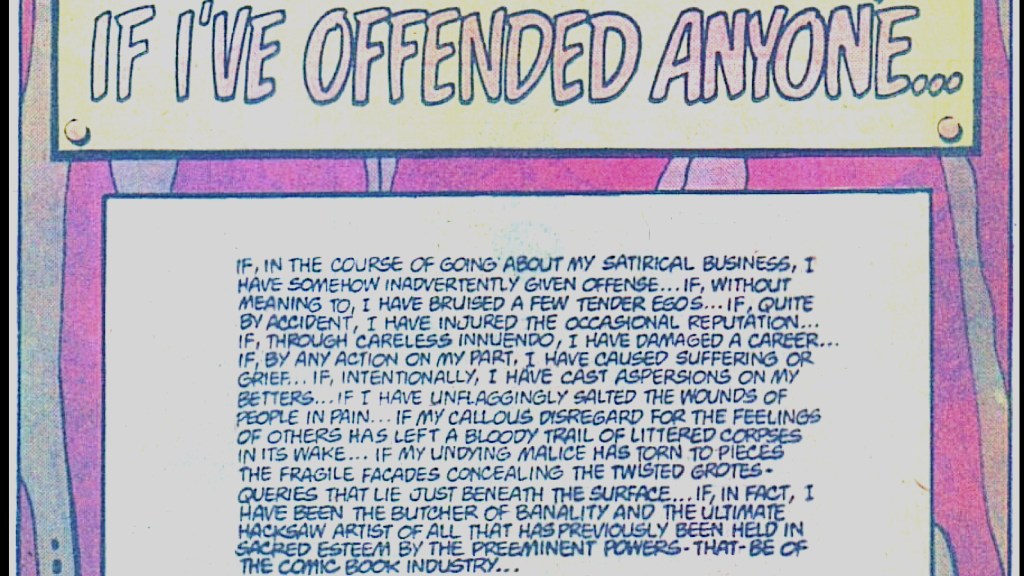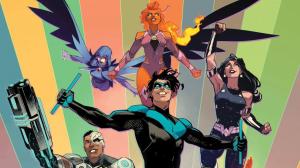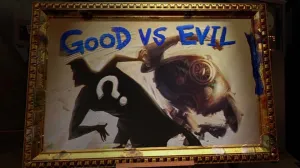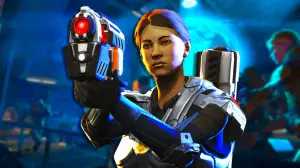As the older of the two largest mainstream superhero comic book publishers, DC Comics has long been perceived as the more straight-laced, formal, and traditional entity. To be sure, one need only look at its foundational heroes — Wonder Woman, Superman, and Batman — to understand the DC Comics universe’s reputation for gravitas. However, just because DC rocks a more “formal” vibe does not mean it is unwilling or unable to let its hair down every once in a while. The best and most recent example of this can be found in the Teen Titans Go! series, with its unabashed meta-commentary on superhero culture.
Videos by ComicBook.com
Since its debut in 2013, Teen Titans Go! has been a stalwart champion of irreverent humor, fourth-wall-breaking antics, and relentless parody of DC Comics’ own tropes. Sholly Fisch and Dario Brizuela’s 2025 series turns the irreverence up a notch by expanding the scope of its tomfoolery to include common superhero tropes across the genre, both in comic books and the “real-life” comic book industry that supports it. Indeed, from a creator’s and fan’s perspective, few things hit home like its portrayal in the premiere issue of the sudden and inexplicable cancellation of a beloved title. Subsequent issues offer a running, albeit subtle, roasting of superhero comic book stories, characters, and creators.
Teen Titans Go! Gets Its Meta-Humor Grove On

However timely and excellent Teen Titans Go!‘s expression of self-deprecating humor may be, it’s important to understand that this is not DC’s first attempt at such commentary. In other words, the comic book is not an anomaly but rather the latest in a long tradition of DC Comics poking fun at itself and the superhero community. While this tradition may not be as extensive as Marvel’s or as biting as South Park‘s satire, DC has consistently embraced the idea that making light of superheroes is good content. More importantly, it suggests that DC recognizes it as a strategy that helps keep superheroes relevant in an entertainment landscape increasingly dominated by video games, streaming platforms, and TikTok-like social media.
Despite what some fans might think, humor — especially the self-aware kind — is far from a bad thing. First, it offers a refreshing alternative to the “dark and grim” tone that has dominated superhero comics for so long that anything different is often dismissed as inferior. Second, it provides a creative way to repurpose DC’s vast library of content rather than letting it gather dust and digital rot. And finally, perhaps most importantly, humor helps open the door to audiences beyond the “serious comic book fan.” Younger readers enjoy the goofy silliness, while older fans can always appreciate a clever, well-placed joke. Of course, this all depends on the execution. Fortunately, DC has repeatedly shown it has the chops to make its humor land.
DC Comics’ Legacy of Sharp, Self-Aware Wit

There’s no better example of DC’s version of superhero satire than the subversive forefather to Fisch’s Teen Titans Go!, Keith Giffen, Robert Loren Fleming, and Bob Oksner’s Ambush Bug. Readers quickly learn that Ambush Bug makes no pretense about its mission: to skewer the superhero comic book universe for all its worth. The cover of the very first issue takes multiple jabs at the ultimate symbol of DC virtue — Superman himself. Like Marvel’s Deadpool, Ambush Bug operates with meta-level awareness. But unlike Deadpool, Ambush Bug was pulling this off before the term “meta-humor” ever existed. Ambush Bug even went on to headline two one-shot specials and two limited series, including one whose title is a direct jab at Marvel Comics.
A few years after Ambush Bug’s first run, DC launched Justice League International — another Keith Giffen project, this time with J.M. DeMatteis — that did something Marvel had rarely attempted: bringing meta-humor to a superhero team book. In doing so, Giffen and DeMatteis proved that saving the world from existential threats could also be funny — without undermining the story’s tension. After all, is there any better way to kick off a series than with Guy Gardner declaring that all the other Green Lanterns are “jerks”? And if you still think DC can’t balance humor and superheroes, consider this: in just its second year of publication, Justice League International was nominated for the prestigious Harvey Award.
Outside of Teen Titans Go!, DC’s current leading representative of fourth-wall breaking is Harley Quinn. While her initial role as the Joker’s sidekick and love interest always had a fun and humorous side, over the last decade, she has embraced absurdity and used it to great comedic effect at the expense of DC and everyone else. The comic book Harley Quinn: Gossamer, by Amanda Conner, Jimmy Palmiotti, and Pier Prito, is a prime example of her humor. It not only makes the reader an insider to all her jokes while poking fun at Batman, the Joker, but also brings in the big, hairy monster from that classic Bugs Bunny cartoon with the Evil Scientist. It’s pure meta-humor gold.
If Batman Can’t Take a Joke, What’s the Point

In an era where superhero media dominates pop culture, the demand for superhero satire isn’t fading. The franchises that refuse to take themselves too seriously often feel the most vibrant. That is, as superheroes become increasingly mainstream, we’ll need more comics willing to laugh at the absurdity – serving as a creative pressure valve to keep the genre fresh. DC titles like Ambush Bug, Justice League International, and Harley Quinn not only demonstrate the publisher’s ability to embrace humor when it chooses, but they also laid the groundwork for comic books like Teen Titans Go!
The idea that comic book superheroes don’t always need to be serious to be both compelling and entertaining is rooted in their very origins. From the start, self-awareness has been the secret weapon preventing superhero stories from collapsing under their own weight. It allows us to recognize the inherent absurdity of people in capes punching aliens, while still reminding us why we love these characters in the first place. Teen Titans Go! is no exception. The series continues this tradition of self-aware humor, showing that even while poking fun at itself, DC can still deliver stories that connect with fans of all ages.









